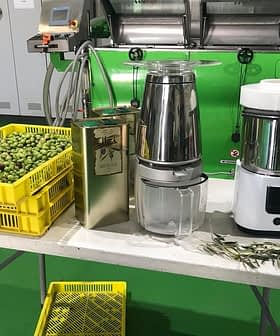A recent report by consultancy firm Datamonitor on the promotion and consumption of olive oil and table olives in the USA and Canada, has noted that although consumer demand for table olives has declined, the olive oil industry is in a very strong position.
The report, which was commissioned by the International Olive Council, confirmed that olive oil has gained in popularity in recent years with predictions for both value and volume growth expected to continue to outdo those of other fats, oils and spreads leading up to 2013. Average value increases are expected to be 7.8% with a volume growth forecast of 3.9%. These figures compare to an overall industry growth of only 3.7% as consumers better understand the health benefits of olive oil and are more willing to pay to achieve those benefits.
The consumption of fats, oils and spreads in both the US and Canada remains high. Overall it is estimated that in kilograms Americans consume 30 kilograms of fats, oils and spreads annually, with the average Canadian consuming 27 kilograms. In terms of calorie intake, US consumers get 25% of their daily allowance from this sector, compared to a Canadian daily intake of 17%. Olive oil was recognized as competing primarily for its share in the market in salad dressings, marinades, sautés, grills, deep frying and baking. On a secondary basis olive oil competes with butter and other spreads as a topping on bread,
pasta and potatoes, as well as for some pan-frying applications.
Although the focus on trans-fats has been good for olive oil’s image and sales, it has not seen competition in the market completely fall away as products like shortening and margarine were able to adjust their formulas accordingly. Other products have been seen to latch on directly to the health benefits of olive oil without delivering.
This has been particularly evident in spreads, many of which in adding a small amount of olive oil to their existing formulas have been able to create the idea in consumers’ minds that the same benefits can be applied using these products as with olive oil itself. This is however, largely misleading as many such products incorporate only a very small amount of olive oil among the other ingredients. The report also suggests that claims to health improvement in this area may resonate most highly with those consumers who resist moving away from the products and spreads with which they have become most familiar. It also stated that consumers could show reluctance to move away from spreads because of confusion caused by diversity within the olive oil category.
On top of this, the study found that in attempting to share health benefits with olive oil, these products create further confusion for consumers about the validity of health claims and their relative importance. The result is that consumers are being constantly asked to asses new information about fats which, when supported by major brand marketing budgets, dilutes positive messages associated with olive oil.
The study, commissioned by the International Olive Council, has received positive response within the industry. On Janury 14th, while attending the mid year meeting of the North American Olive Oil Association, IOC Executive Director Jean-Louis Barjol announced that an invitation would be issued in March for a campaign to promote olive oil and table olives in North America in 2011 and 2012, a move welcomed by the NAOO and for which this study will prove extremely useful.









